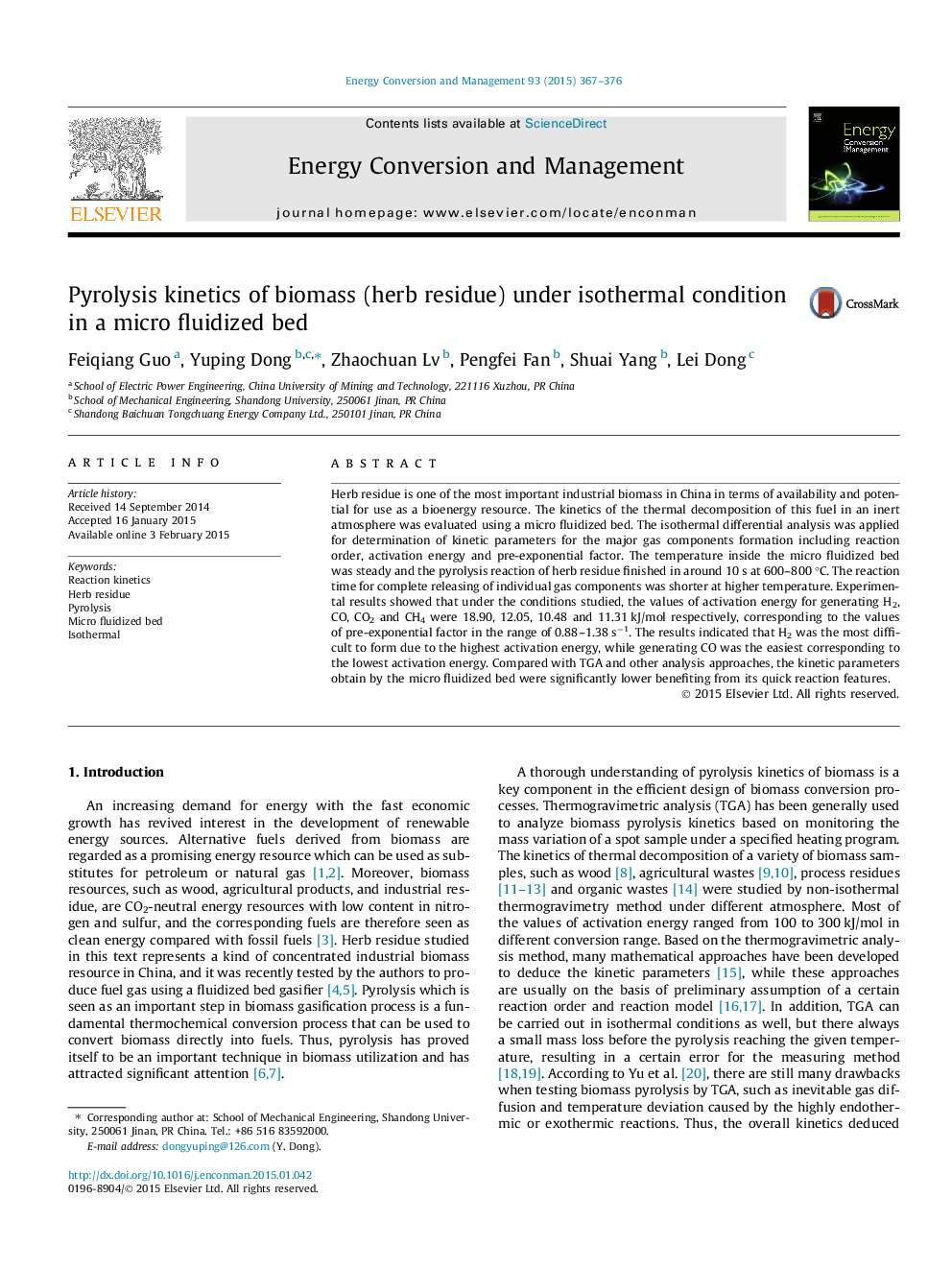| Article ID | Journal | Published Year | Pages | File Type |
|---|---|---|---|---|
| 7163006 | Energy Conversion and Management | 2015 | 10 Pages |
Abstract
Herb residue is one of the most important industrial biomass in China in terms of availability and potential for use as a bioenergy resource. The kinetics of the thermal decomposition of this fuel in an inert atmosphere was evaluated using a micro fluidized bed. The isothermal differential analysis was applied for determination of kinetic parameters for the major gas components formation including reaction order, activation energy and pre-exponential factor. The temperature inside the micro fluidized bed was steady and the pyrolysis reaction of herb residue finished in around 10 s at 600-800 °C. The reaction time for complete releasing of individual gas components was shorter at higher temperature. Experimental results showed that under the conditions studied, the values of activation energy for generating H2, CO, CO2 and CH4 were 18.90, 12.05, 10.48 and 11.31 kJ/mol respectively, corresponding to the values of pre-exponential factor in the range of 0.88-1.38 sâ1. The results indicated that H2 was the most difficult to form due to the highest activation energy, while generating CO was the easiest corresponding to the lowest activation energy. Compared with TGA and other analysis approaches, the kinetic parameters obtain by the micro fluidized bed were significantly lower benefiting from its quick reaction features.
Related Topics
Physical Sciences and Engineering
Energy
Energy (General)
Authors
Feiqiang Guo, Yuping Dong, Zhaochuan Lv, Pengfei Fan, Shuai Yang, Lei Dong,
